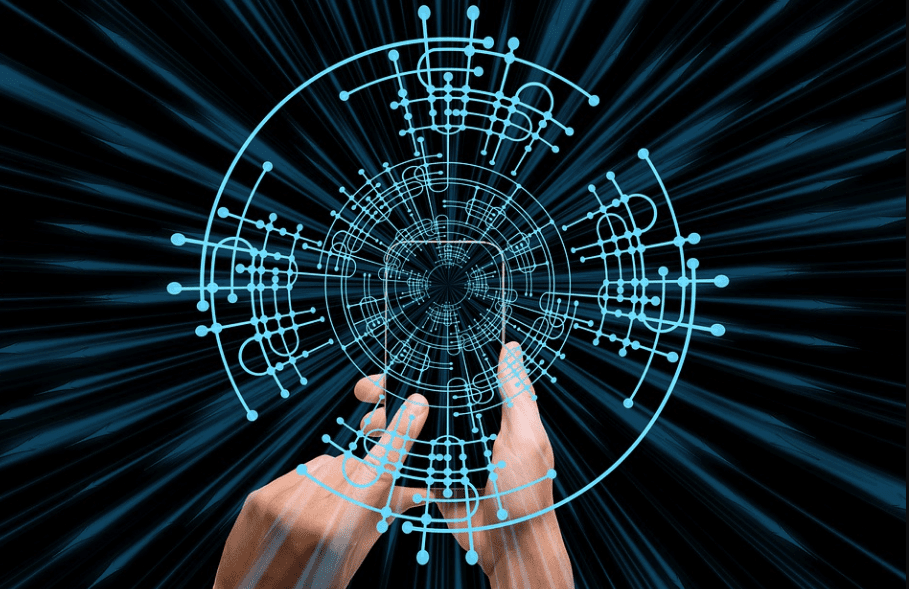Nature transformed from an organism into a mechanism, and finally man! The world that has been transformed from a subject into an object, into a pile of inanimate objects!
In a world dominated by Cartesian world design and dualism, modern man, trapped in the laws of change of society, is condemned to live as a bipolar personality with a schizophrenic self divided into many parts.
A system in which we are isolated from the ‘thing in itself’ and accustomed to live as if it does not exist. Like a robot, go to work, go shopping, hurry… Hurry home, hurry to eat, hurry to love your child, hurry to make love… Like birds in a hurry, run from one end of the stream to the other without knowing what you are looking for.
Where is the soul? Can you feel the only part of us that belongs to God in such a system? The system does not allow you to feel yourself, your human side, even for a moment, a breath of time. The conditions of life! Is this really the condition of life, that you lose yourself in these conditions? Don’t you realize how consciously created these conditions are? Isn’t it extremely evil that everything is designed in such a way that man cannot feel his God side!
Homo Economicus, the economic type of human being: Portrayed in the 17th century English philosophical tradition. This model appears for the first time in history. It is substituted for the ‘believer’ who until then had been breathing and searching for himself. Because in the same century, for the first time in history, the economy rose above everything else and began to determine all values, including morality and law. It even went further; Descartes’ res cogitans – res extensa dichotomy was replaced by res extensa, and the mechanical world and human profile was shaped on this basis.
read more:
By basing the source of knowledge solely on observation/experimentation/experience/sensation, English philosophy completely detaches the human mind from revelation. The human mind is now a blank slate, a ‘tabula rasa’ (D. Locke), without any innate knowledge. According to this view, any knowledge that is not subject to experimentation has no value. Man is a being of reason, yes, but this reason has no divine ground. Although the 17th century British philosophical and ideological world, shaped by Hobbes, Locke and Hume, emphasized the individuality of man, it made sociality obligatory and reduced sociality to a contract between individuals who necessarily come together.
For Hobbes, social existence is necessary because “man is the wolf of man”. Since no individual is equal to another, equality can only be achieved through contract. Those who are equal do not need a contract. People have to live together as a matter of reason. Societies based on contract differ from traditional belief societies in this respect. According to religious assumptions, people were created to live together. The reflection of this divine quality of creation on society is reflected in solidarity and cooperation on the moral plane. However, in a contract, there are interests, not solidarity. In order to ensure mutual security of interests, a contract must be concluded if the interests match. ‘Thou shalt not steal’ is no longer a commandment of God, it becomes a moral and legal obligation to prevent chaos in the order, since it is an action that threatens mutual interests.
The transformation of economic production into a form that aims to make profit (surplus-value) beyond meeting personal and social needs also leads to the targeting of the individual as a value that both produces and consumes. In a mechanically functioning nature, in a robotically functioning society, in a machine-like economy, and in a world where everything is calculated, measured and categorized, human power, formerly called labor, becomes a cost.
The melting away of spiritual values in the face of money, a virtual value, has set the stage for terrible human dramas. The place where this drama was staged most horribly and brutally was the American continent. Black slaves were gathered from the old continent like a herd of animals and started their journey of death towards the new continent in the dark, airless and narrow cellars of the ships. Nearly six million Indians were genocided. Their children and women were lured into production as cheap labor, families were torn apart, and all traditional structures were thrown into decay. A horrible atrocity!
The selection of human beings as the value that produces and consumes leads to a new doctrine of knowledge: Psychology! The study of the human being as an individual brings with it the theory of knowledge of psychology. What is expected in the study of the human being, who is squeezed between two basic impulses: desire and hate, is the determination of desires and, moreover, the determination of what and how to make him desire. The aim is to conquer the human being. If the secrets of the human being are known, their tastes and pleasures can also be determined. The way to economy and consumption was to know human psychology in order to create Homo Economicus. In the 18th and 19th centuries, psychology was the most functional and profitable aid to British expansionism.
With the rise of economics above all values, the importance given to education and training increased. Everything, even God, along with all spiritual values, began to be reconstructed according to economics. From now on, God will exist to the extent that he can contribute to your profit and your interests. The Anglican Church in England has been the best example of this understanding, because the Church in England has existed to the extent that it can serve the elite. It is no longer important to live according to divine revelation, but religion must be reorganized according to human pleasures and interests. Man for God must be transformed into God for man, and so, immediately after the secularization of philosophy, religion is rationalized in accordance with the interests of the elite. Education and training are massified.



